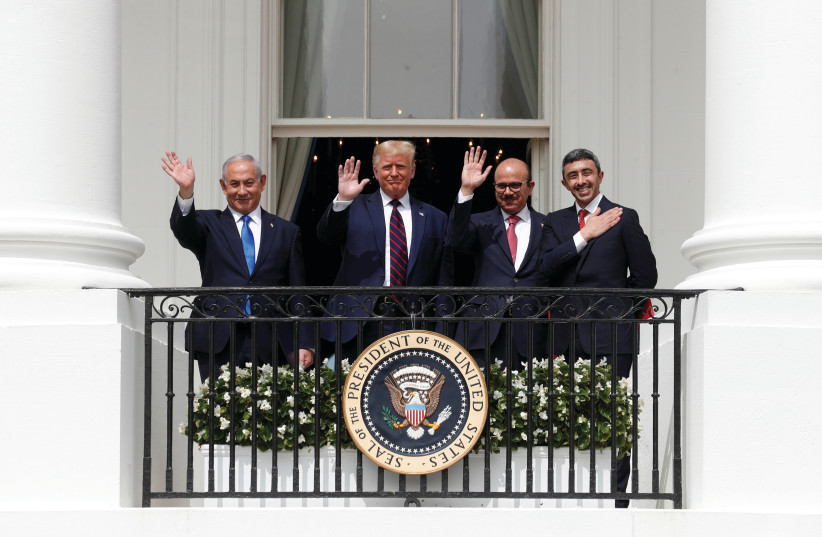The Jews, throughout the millennia, have suffered a disability that I would dare say is genetic (even though we are not a race) or at the very least buried so deep in our shared soul, that to separate it from us would render the Jew unrecognizable.
This disability is our refusal to accept the world as it is. We refuse to accept the nature of our reality and insist on improving it. And while inability might be cured, disability is a state of being that is chronic.
Since Abraham’s journey to the land of Canaan, through the Exodus from Egypt, the judges, kings, temples, Talmud, exiles, Holocausts, and start-ups – all of these phenomena, both their successes and failures, are a testament to our disability. Even our rejection of Jesus as the Messiah, and every single messianic pretender since, comes from this disability to accept that “that’s all there is.”
Why is nothing ever good enough for Jews?
Nothing is good enough for us. Jesus is said to have walked on water, raised the dead and died for our sins, and yet we still preferred thousands of years of martyrdom rather than accept him. We are simply unable to accept salvation when there is still so much more in the world we can fix!
And this is why we still await the Messiah and pray for the rebuilding of Jerusalem at a time in which Israel’s GDP per capita is ahead of Canada, Japan, the UK and Italy. The vast majority of Jews today have no memory of Jerusalem flying any other flag than Israel’s, and yet we still sing “next year in Jerusalem” and pray for its restoration.

Peace broke out in the Middle East in 2020, and it was greeted with a yawn (and a cheap flight to Dubai for the weekend). You would think that this would have been the greatest news of the century, but somehow we failed to be impressed. Instead of being amazed at what was achieved, we all asked when was Saudi Arabia going to join the party as well?
We Jews have been at the forefront of every single revolution – political, economic, technological, scientific and social – because we are always striving for change, always saying the world isn’t good enough, always refusing to accept what “is” in exchange for what “could be.”
This is why we sit in labs, join protest movements, write, produce, publish, lead companies, nations and progressive agendas. We are constantly on the move both literally and figuratively. It’s what gave us the strength to uproot ourselves from our homes and reconstitute ourselves again and again in different lands across the globe.
It is what allowed us to return to the Land of Israel, which in our absence had become a desert, and create one of the greatest and most vibrant countries the world has ever known. Our military is dependent on this disability, as it forces us to pave roads where none has existed, find solutions to problems that had no answer, and forge victory when all looks lost. We do this because of our disability and our refusal to accept our given circumstances.
Complacency is anathema to the Jew.
ABBA EBAN, Israel’s famed diplomat in the early days of the state, once said, “the Jews are a people who refuse to take ‘Yes!’ for an answer.”
“The Jews are a people who refuse to take ‘Yes!’ for an answer.”
Israeli diplomat Abba Eban
And yet it is this refusal that is our super-power. To imagine us without this disability would be to imagine an entirely different creature than the one we call “Jew” today. It is a disability that is the very core of our identity and the source of our very being.
It is what allowed us to maintain a separate identity from our neighbors and continue to insist on God’s place in this world. It has prevented us from accepting ethics in place of sanctity and mere religion instead of an intimate relationship with God.
Our refusal to accept the world as it is has helped us to turn the Bible into a library of books that shows the world a promise of what could be. It is in the Bible where we find the voices of God and men mix in glorious symphony, summoning us to be better than we are at any given moment. The prophets of Israel are the best embodiment of this disability by insisting on their truth, even when everything and everyone were against it.
The Bible shows us that by refusing to accept that we are mere creatures of dust and earth, we can be as angels basking in the Divine presence. By refusing to accept the reality that we are but naked apes, we can find the dignity we need to stand before God in fellowship with Him.
And in that fellowship with God, we still complain and have the chutzpah to throw His own question back to Him and ask, “Ayecha? Where are you?” And at that moment God embraces us even tighter, laughs to Himself and whispers, “I am here! If only you would let me into your hearts!” ■
The writer holds a doctorate in Jewish philosophy and teaches in post-high school yeshivas and seminaries in Jerusalem.
